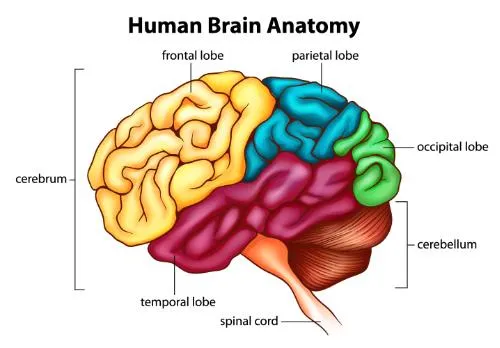
What Chiropractic Patients Want to Know About the Brainstem and Its Function
Most people have heard of the brain stem before—but what is it, exactly? Read on to learn what the brain stem does and why it is so important.
What is the Brain Stem?
The brain stem connects your cerebrum, the lowest part of your brain, with your spinal cord. It is an extremely important part of your body because it serves as the bridge between your brain and all the nerves that travel through your spine and throughout your body. Whether nerve signals are traveling from the brain to other parts of your body, or from parts of your body back to your brain, those signals all need to travel through the brain stem.
In addition to serving as the pathway for your nerves to reach your brain, the brain stem also contains some of its own important structures that control various functions required for life—like your heart rate, your breathing and your blood pressure. It also coordinates different movements in your face, neck, and head, including your facial expressions, the movement of your jaw, and the movement of your tongue.
Brain Stem Injury
The brain stem can be injured by accident or disease. The more serious the injury, the more significantly it affects the wellbeing of the person who is injured—like causing a coma. Strokes can affect the brain stem as well, and the effects of a brain stem stroke can include ongoing pain, vision issues, speech issues and/or limitations to body movement.
Chiropractic and Brain Stem Health
Chiropractors are trained to help patients maintain good spinal health and nervous system function. When you go to visit your chiropractor, you will get a full examination and be offered a treatment plan based on your current condition and desired outcomes. Part of the process of thorough chiropractic care includes ensuring optimal health of the cervical spine, also known as the upper spine. By identifying possible issues with cervical spine health and correcting those issues, your chiropractor can help you ensure that you achieve the best possible communication between your spine and brain stem.
Some of the methods your chiropractor can use to encourage spinal health and nervous system function include:
Chiropractic Adjustments
Even if you have never visited a chiropractor before, you probably can picture one at work—cracking the back and neck of a patient. While the depiction of chiropractic adjustments in movies and television are not necessarily accurate and are often overblown—especially in the level of intensity the actor uses to mimic adjustments—there is some truth to fiction. When you go see a chiropractor and you want him or her to help with your spinal health, you will probably get an adjustment.
Chiropractic adjustments are designed to correct potential issues with how your vertebrae are aligned. Misaligned vertebrae can inhibit nerve function and eventually lead to pain and loss of mobility. After your chiropractor examines you to identify issues with alignment, they will then offer to adjust your back and/or neck to improve alignment. The process can involve some application of force, but only enough to achieve the desired goal.
Massage Therapy
Muscles often seize up when nerves become compressed by misaligned vertebrae. Your chiropractor may prescribe massage therapy to go along with adjustments to relieve such tension. The more the massage therapy relaxes the muscles, the easier it will be for your body to remain in proper alignment.
Contact Us to Learn More
If you are interested in learning more about how chiropractic can help improve your health, please contact us. We are here to help you feel better and live a fuller, happier life!
This article is copyrighted by Blogging Chiropractors for its Doctor of Chiropractic members and may not be copied or duplicated in any manner including printed or electronic media, regardless of whether for a fee or gratis without the prior written permission of Blogging Chiropractors.
Office Hours
Mon 8:00-12:30, 2:30-7pm
Tues 8:00-12:30, 2:30-7pm
Wed 8:00-12:30, 2:30-7pm
Thurs 8:00-12:30, 2:30-7pm
Fri - Sun Closed
© 2025 Gonstead Chiropractic Center - All Rights Reserved

